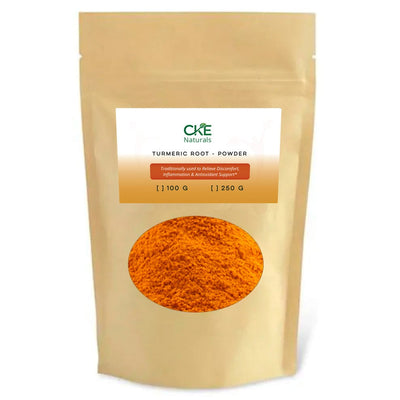Flavorful Wellness: Unveiling 10 Delicious Herbs and Spices Packed With Health Benefits
In the pursuit of a healthier lifestyle, an increasing number of individuals are turning to the rich and diverse realm of herbs and spices to elevate the taste of their culinary creations while enhancing their overall well-being.
This comprehensive article embarks on a captivating journey into the realm of flavorful wellness, where we unveil the top 10 herbs and spices with explanation of health benefits, each brimming with exceptional health benefits. These natural wonders, gifted to us by Mother Nature, provide a symphony of flavors and a treasure trove of advantages for your health.
From the fragrant allure of Basil to the fiery kick of cayenne pepper, we invite you to explore how these culinary gems not only tantalize your taste buds but also promote your physical and mental vitality. Here are all the health benefits of herbs and spices that will compel you to make healthy choices:
Basil - Nature's Antioxidant:
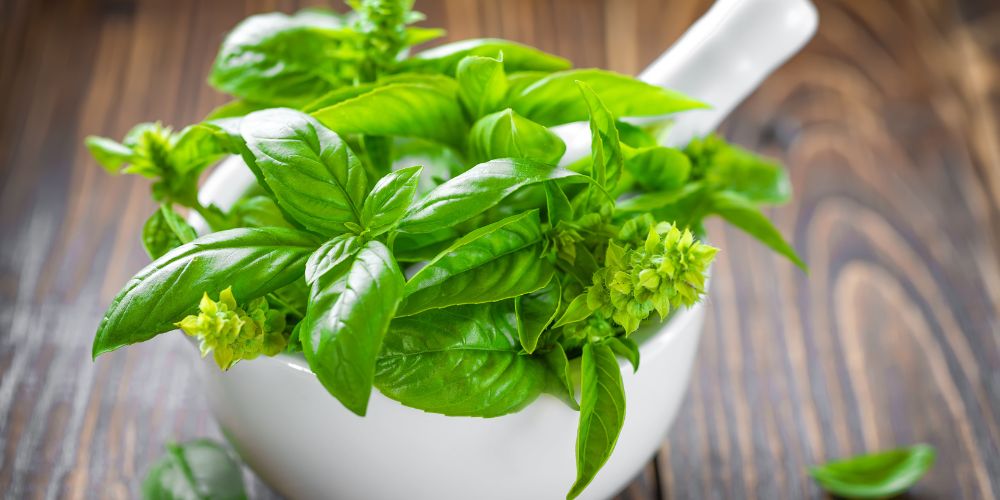
With its sweet and slightly peppery flavor, Basil is an essential ingredient in Italian cuisine and a powerhouse of health benefits. Rich in antioxidants, Basil helps combat oxidative stress and inflammation, potentially reducing the risk of chronic diseases. Here's an in-depth look at its advantages:
Antioxidant Richness: Basil is loaded with antioxidants like flavonoids and polyphenols. These compounds fight free radicals, damaging cells and contributing to aging and various diseases.
Anti-Inflammatory Properties: The essential oil in Basil contains eugenol, which has strong anti-inflammatory properties. This can be especially helpful for individuals with conditions like rheumatoid arthritis.
Heart Health: Basil supports cardiovascular health by helping to lower blood pressure and reducing the risk of heart diseases. The magnesium in Basil contributes to muscle and blood vessel relaxation.
Bone Health: This herb is a good source of vitamin K, which plays a crucial role in bone health. It helps in bone mineralization and reduces the risk of osteoporosis.
Basil can be easily incorporated into your diet. Use fresh basil leaves in salads, sandwiches, or as a garnish for pasta dishes. You can also make a delicious basil pesto sauce to drizzle over various dishes. You will often find it in the health benefits of herbs and spices chart.
Turmeric - The Golden Spice:
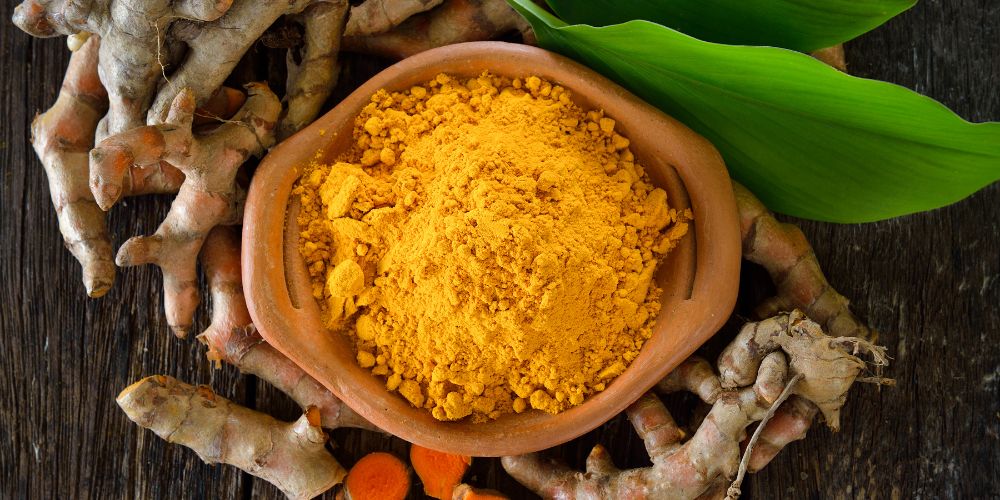
Turmeric, known for its vibrant yellow hue and earthy flavor, contains curcumin, a potent anti-inflammatory compound. Let's explore how this spice can enhance your health:
Anti-Inflammatory Powerhouse: Curcumin is the star turmeric player known for its powerful anti-inflammatory effects. It can help alleviate symptoms of inflammatory conditions like arthritis.
Digestive Aid: Turmeric can aid digestion by stimulating bile production, which aids in the breakdown of fats. It may also help with symptoms of indigestion.
Brain Health: Curcumin has been linked to improved brain function and a lower risk of neurodegenerative diseases like Alzheimer's.
Antioxidant Benefits: Turmeric is rich in antioxidants, which help stress support and protect cells from damage.
To incorporate turmeric into your diet, try adding it to curries, soups, or smoothies. You can also take turmeric supplements for a more concentrated dose of curcumin.
Cinnamon - Blood Sugar Stabilizer:
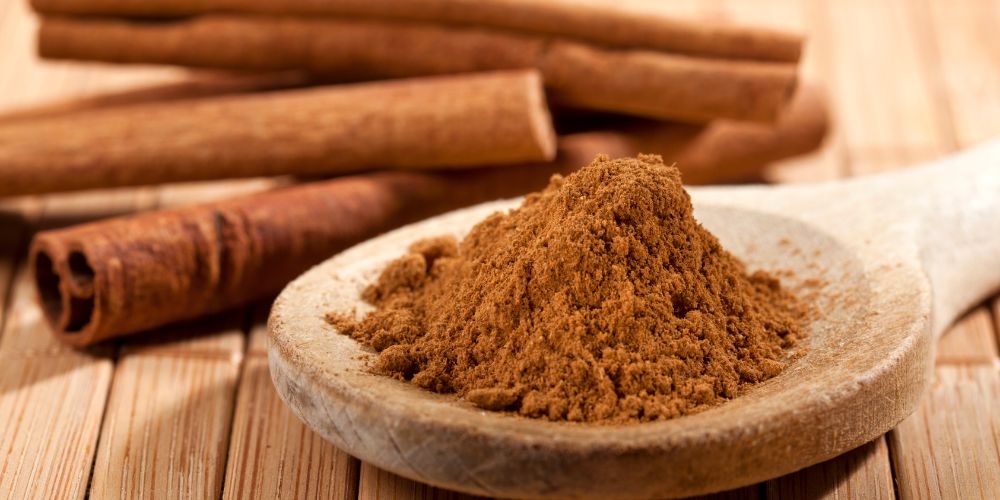
With its warm and comforting aroma, Cinnamon is a delightful spice and a potent health booster. It's always an essential part of the health benefits of herbs and spices list. Here's how Cinnamon can benefit you:
Blood Sugar Regulation: Cinnamon can improve insulin sensitivity, particularly useful for those with type 2 diabetes. It helps lower blood sugar levels.
Heart Health: Cinnamon may reduce the risk of heart disease by improving cholesterol levels. It can lower LDL cholesterol and triglycerides.
Antioxidant Properties: Cinnamon is rich in antioxidants that help protect cells from damage caused by free radicals.
Weight Management: Some studies suggest that Cinnamon may help with weight loss by reducing appetite and aiding in fat breakdown.
Add Cinnamon to your morning coffee or oatmeal, sprinkle it on roasted vegetables, or use it in baking for a delightful and healthy twist.
Ginger - Nature's Digestive Aid:
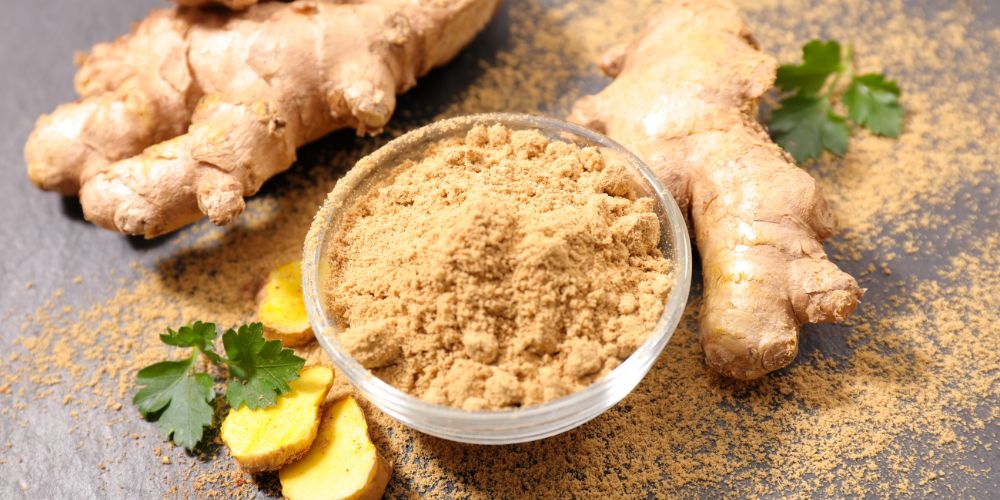
With its zesty and slightly spicy flavor, ginger has been valued for centuries for its digestive properties. You will always find it when it comes to discussing the health benefits of different herbs and spices. Let's explore the many ways ginger can enhance your well-being:
Nausea Relief: Ginger is highly effective in reducing nausea, whether due to morning sickness, motion sickness, or chemotherapy-induced nausea.
Anti-Inflammatory Power: The active compounds in ginger, such as gingerol, have potent anti-inflammatory and antioxidant effects. This makes ginger a natural remedy for various inflammatory conditions.
Pain Reduction: Ginger has analgesic properties that can help reduce muscle pain and soreness. It's a natural alternative for pain relief.
Immune Support: Ginger's antimicrobial properties can help boost your immune system, making it a valuable addition during cold and flu season.
You can enjoy ginger in various forms: as a hot tea, in stir-fries, soups, or even in baked goods. Ginger supplements are also available for a convenient dose of its benefits.
Garlic - Heart-Healthy Herb:
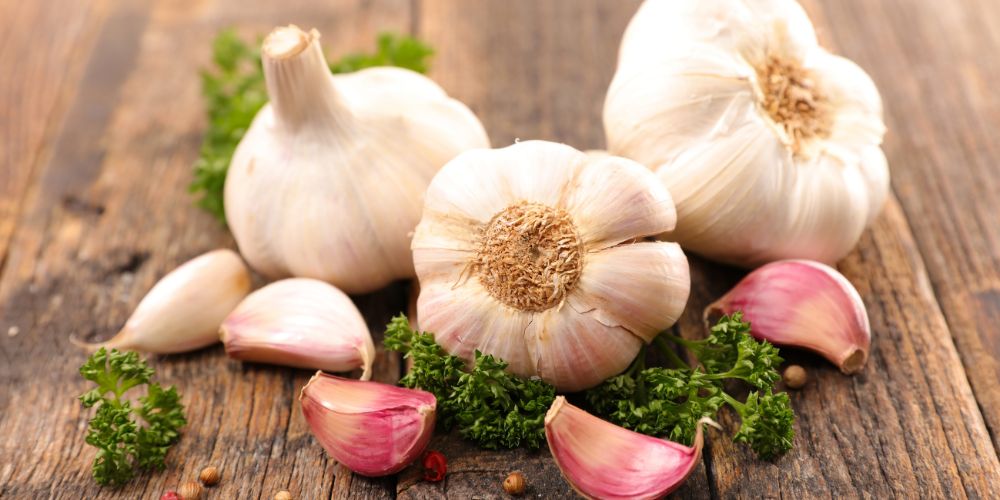
Garlic, known for its strong and aromatic flavor, is more than just a culinary staple; it's a potent health enhancer. Here's an in-depth look at its advantages:
Blood Pressure Management: Garlic is known to lower blood pressure, reducing the risk of hypertension. Allicin, a sulfur compound in garlic, plays a role in this effect.
Antibacterial and Antiviral: Garlic has been used for centuries for its antibacterial and antiviral properties. It can help fight infections and support overall immune health.
Cholesterol Regulation: Garlic can positively impact cholesterol levels by lowering LDL (bad) cholesterol and triglycerides. This promotes heart health.
Cancer Prevention: Some studies suggest that garlic consumption may be associated with a reduced risk of certain cancers, including stomach and colorectal cancer.
Garlic can be used in countless savory dishes, from pasta sauces to roasted vegetables. It's best enjoyed when crushed or minced to release its potent compounds.
Rosemary - Cognitive Booster:
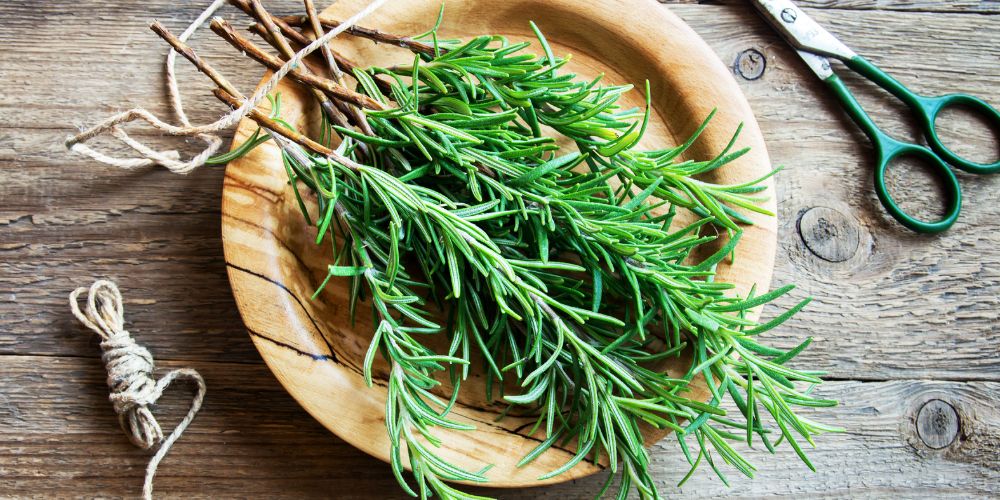
Rosemary, with its fragrant, pine-like aroma, is more than just a flavorful herb; it also offers various health benefits:
Cognitive Enhancement: Rosemary has been linked to improved memory and cognitive function. The aroma alone can enhance mental clarity.
Anti-Inflammatory Effects: Rosemary contains compounds like rosmarinic acid, which have anti-inflammatory properties. It may help reduce inflammation in the body.
Antioxidant Rich: It's a rich source of antioxidants, which combat oxidative stress and protect cells from damage.
Respiratory Health: Inhaling rosemary vapor can help alleviate respiratory issues, making it beneficial for allergies and congestion.
Rosemary is a versatile herb that can be used in marinades, roasted meats, and even in bread or pizza dough. It adds a delightful aroma and flavor to various dishes.
Oregano - Aromatic Immune Support:
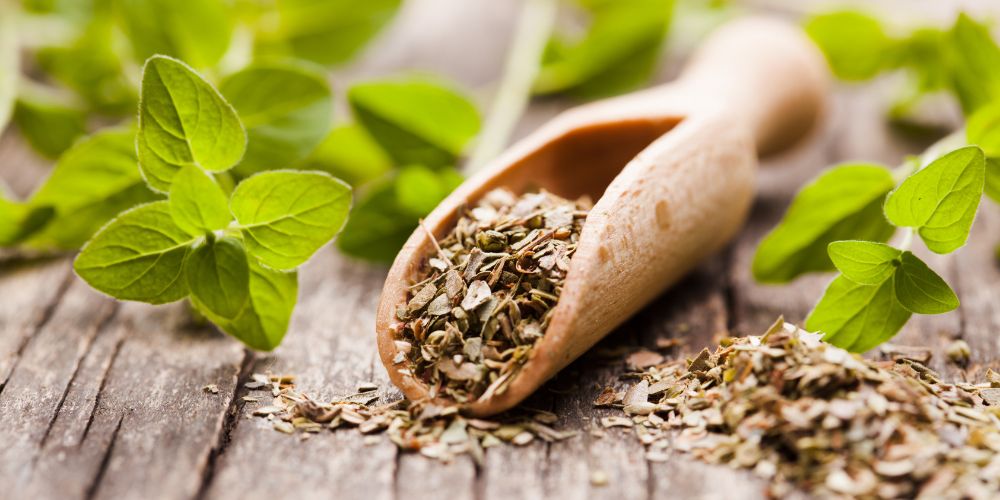
Oregano, known for its aromatic and slightly bitter flavor, offers numerous health benefits:
Antimicrobial Power: Oregano is rich in essential oils like carvacrol and thymol, which have strong antimicrobial properties. They can help fight off infections.
Antioxidant Content: It's packed with antioxidants that protect cells from oxidative stress and contribute to overall well-being.
Digestive Aid: Oregano may aid digestion and alleviate irritable bowel syndrome (IBS) symptoms due to its carminative properties.
Anti-Inflammatory Effects: Some studies suggest that oregano can help reduce inflammation in the body.
Oregano is a staple in Italian and Mediterranean cuisine. It's commonly used in tomato sauces, pizza, and pasta dishes. You can also make oregano-infused oil for salads and cooking.
Cayenne Pepper - Fiery Health Booster:

Cayenne pepper, known for its fiery kick, has several health benefits. It is the spice of life health benefits of spices and herbs:
Metabolism Booster: Capsaicin, the active compound in cayenne pepper, can boost metabolism, aiding in weight loss efforts.
Pain Relief: Topical capsaicin creams can provide pain relief, especially for conditions like osteoarthritis and neuropathic pain.
Appetite Reduction: Cayenne pepper may reduce appetite, leading to decreased calorie intake when added to meals.
Heart Health: It promotes cardiovascular health by improving circulation and reducing blood pressure.
For a spicy kick, cayenne pepper can be added to soups, stews, and sauces. You can make cayenne pepper-infused oils or add it to hot beverages like tea.
Mint - Soothing and Refreshing:
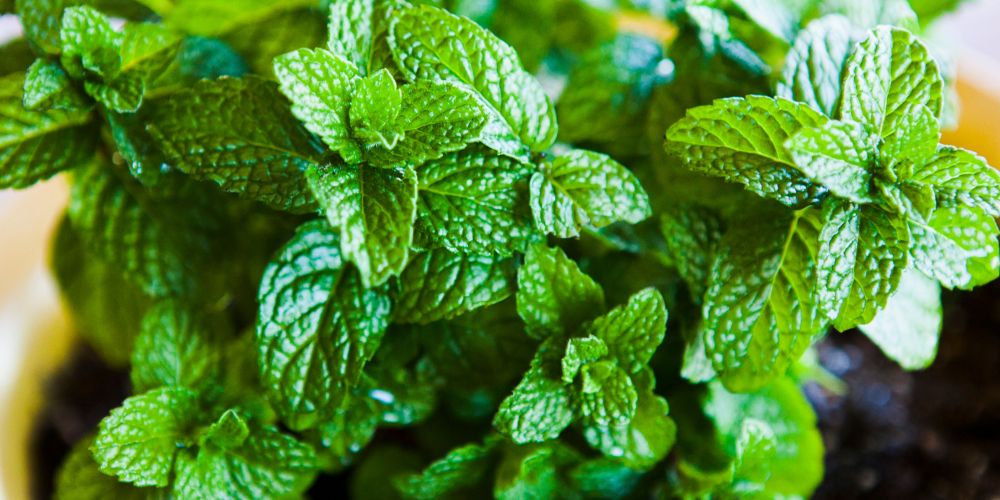
Mint, with its cool and refreshing taste, offers numerous health benefits:
Digestive Comfort: Mint can soothe digestive discomfort, alleviate indigestion, and reduce symptoms of irritable bowel syndrome (IBS).
Headache Relief: The aroma of mint can help alleviate headaches and migraines when inhaled or applied topically.
Skin Health: Mint's anti-inflammatory properties make it beneficial for skin conditions, including acne and irritation.
Oral Hygiene: Mint freshens breath and supports oral hygiene, making it a common ingredient in toothpaste and mouthwash.
Mint can be enjoyed in various forms, from fresh leaves in salads and beverages to mint tea and even mint-infused water for a refreshing twist. No wonder you will always find this one in the list of spices and herbs and their health benefits.
Sage - Cognitive and Anti-Inflammatory Herb:

Sage, with its earthy and slightly bitter flavor, offers a range of health benefits:
Cognitive Function: Sage has been linked to improved memory and cognitive function, making it a valuable herb for brain health. It is a must-have for a list of herbs and spices health benefits.
Anti-Inflammatory Effects: Compounds in sage, such as rosmarinic acid, have anti-inflammatory properties that may benefit conditions like arthritis.
Bone Health: Sage is a good source of vitamin K, which plays a crucial role in bone health and helps prevent osteoporosis.
Culinary Delight: Sage adds a savory flavor to dishes, making it a favorite in stuffing, roasted meats, and sauces.
Sage can be used fresh or dried in various recipes, enhancing both your dishes' flavor and potential health benefits.
Ways to Incorporate These Herbs in Diet: Yielding Health Benefits Of Spices And Herbs
Incorporating herbs and spices into your daily life adds flavor and depth to your meals and brings many health benefits. Let's explore various ways to integrate these ten delicious herbal extracts and spices into your everyday culinary adventures:
1. Basil:
Fresh Basil Leaves: Add fresh basil leaves to salads, sandwiches, and wraps. It pairs exceptionally well with tomatoes, mozzarella, and balsamic vinegar.
Basil Pesto: Whip up a classic basil pesto by blending basil leaves, garlic, pine nuts, Parmesan cheese, and olive oil. Use it as a sauce for pasta or a spread for sandwiches.
Infused Water: Create a refreshing drink by infusing water with basil leaves and slices of lemon or lime.
2. Turmeric:
Golden Milk: Prepare a soothing and nutritious golden milk by mixing turmeric with milk (or a dairy-free alternative), honey, and a pinch of black pepper.
Curry Delights: Turmeric is a key ingredient in curry powder. Use it in curries, stews, and soups for its vibrant color and earthy flavor.
Turmeric Tea: Brew a cup of turmeric tea by simmering turmeric powder in hot water. Enhance it with a squeeze of lemon and a touch of honey.
3. Cinnamon:
Breakfast Bliss: Sprinkle cinnamon on your morning cereal, oatmeal, or yogurt for a warm and comforting start to the day.
Spiced Coffee: Add a pinch of cinnamon to your coffee grounds before brewing for a delightful and aromatic twist.
Baked Goods: Incorporate cinnamon into your baking recipes, such as cinnamon rolls, muffins, and apple pies.
4. Ginger:
Ginger Tea: Brew ginger tea by steeping fresh ginger slices in hot water. Add honey and lemon for extra flavor.
Stir-Fries: Grate or mince ginger and toss it into stir-fries for a zesty kick and digestive benefits.
Smoothie Booster: Blend fresh or ground ginger into your morning smoothie for a refreshing and healthful addition.
5. Garlic:
Sautéed Goodness: Sauté minced garlic in olive oil as a base for many dishes, such as pasta sauces, stir-fries, and soups.
Roasted Garlic: Roast whole garlic bulbs until they turn buttery and sweet. Squeeze the roasted cloves onto bread or into mashed potatoes.
Flavorful Marinades: Create flavorful marinades for meat and vegetables by combining garlic with herbs and spices.
6. Rosemary:
Herb-Infused Oils: Make rosemary-infused olive oil to drizzle over roasted vegetables, pizza, or bread.
Rosemary Potatoes: Toss diced potatoes with rosemary, olive oil, and salt, then roast until crispy and fragrant.
Roasted Meats: Rosemary pairs wonderfully with roasted meats like chicken, lamb, and pork.
7. Oregano:
Italian Classics: Use oregano in Italian dishes like pasta sauces, pizza, and lasagna.
Salad Dressings: Make homemade salad dressings with oregano, olive oil, vinegar, and honey or mustard.
Mediterranean Flair: Incorporate oregano into Mediterranean-inspired dishes like Greek salad and tzatziki sauce.
8. Cayenne Pepper:
Spicy Seasoning: Sprinkle cayenne pepper on roasted nuts, popcorn, or even chocolate desserts for a spicy kick.
Hot Sauces: Make your hot sauces by blending cayenne pepper with vinegar, garlic, and salt. Use them to add heat to various dishes.
Spicy Marinades: Create spicy marinades for grilled chicken, shrimp, or tofu by mixing cayenne pepper with other spices and olive oil.
9. Mint:
Refreshing Beverages: Brew mint tea or add fresh mint leaves to iced tea, lemonade, or cocktails for a refreshing twist.
Tasty Garnish: Use mint leaves as a garnish for desserts, fruit salads, and savory dishes like lamb or couscous.
Minty Desserts: Incorporate mint into desserts like homemade ice cream, chocolate mousse, or mint-infused chocolates.
10. Sage:
Flavorful Stuffing: Use sage in stuffing recipes for poultry dishes, such as Thanksgiving turkey or roasted chicken.
Herb Butter: Mix sage into softened butter along with other herbs and spices. Use it as a spread or to baste meats.
Savory Soups: Add fresh or dried sage to soups and broths for a warm and aromatic flavor.
By exploring these creative ways to incorporate these herbs and spices into your daily meals, you not only enhance the taste of your dishes but also reap the numerous health benefits of using herbs and spices. Experiment with different combinations and savor the flavorful wellness they bring to your table.
FAQs:
Wrapping Up:
Embracing the inclusion of these ten flavorful herbs and spices in your culinary repertoire isn't just about enhancing the taste of your dishes; it's a delightful step towards nurturing your overall well-being. These culinary gems, ranging from Basil's freshness to cayenne pepper's fiery zest, provide a delightful avenue to elevate your health.
By incorporating these natural wonders into your daily meals, you unlock a treasure trove of benefits, from reducing inflammation to strengthening your immune system. This culinary exploration isn't just about pleasing your palate; it's a journey toward a healthier you.
Whether you want to opt for Spirulina wellness or are looking for general wellness supplements, CKE Naturals has got you covered completely. You can find all the organic solutions for your health concerns and enjoy everlasting well-being.
So, embark on this flavorful adventure, experiment with these herbs and spices in your cooking, and savor the delicious path to enhanced wellness. Your taste buds and your health will thank you for it.


